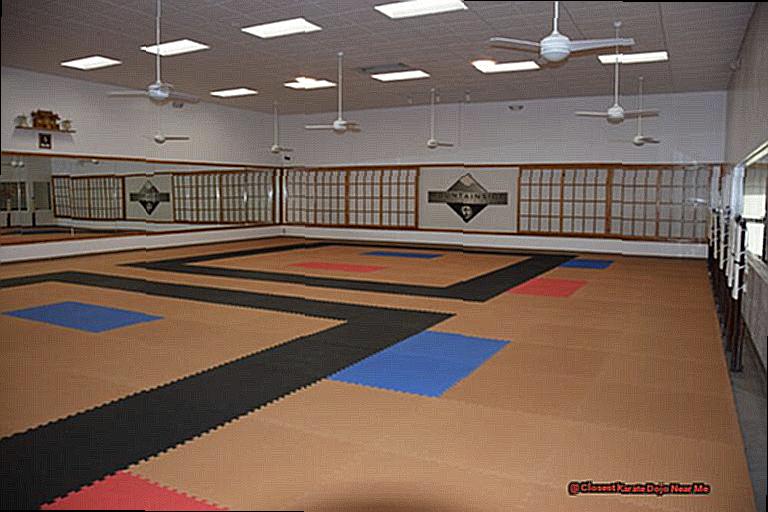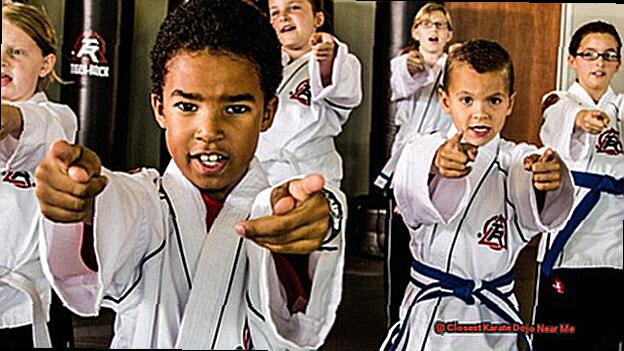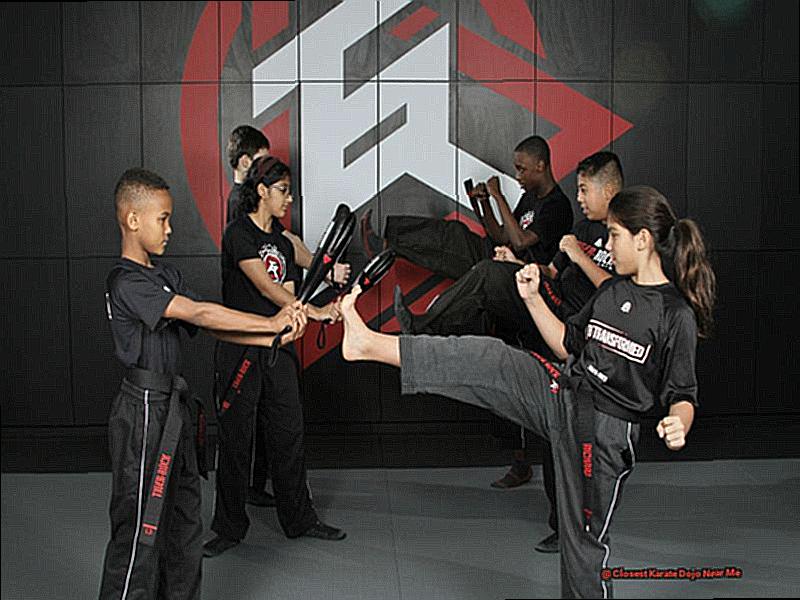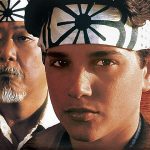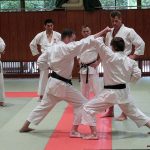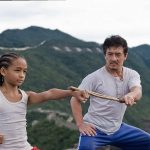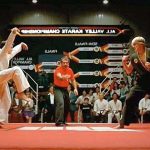Welcome to our blog post on the closest karate dojo near you. Are you searching for a place to learn self-defense, improve your physical fitness, and cultivate discipline and focus? Look no further because we have discovered the perfect spot just a stone’s throw away from your neighborhood. This dojo offers exceptional training in traditional Japanese martial arts and is sure to exceed your expectations. Here’s what you can look forward to:
- Experienced and certified instructors who will guide you every step of the way
- A warm and inclusive community that will make you feel right at home
- Classes for all ages and skill levels, from beginners to black belts
- A curriculum that combines physical techniques with mental and spiritual development
- Opportunities to compete in local and national tournaments
Join us as we explore this hidden gem in your area. Trust us, you don’t want to miss out on the incredible benefits of practicing karate at this dojo.
Let’s dive in.
Closest Karate Dojo Near Me?
Finding the perfect dojo can be a daunting task, but fear not, we’ve got you covered. Forget about asking Siri or Alexa, the best way to find a Karate dojo near you is by utilizing online resources, directories, and personal recommendations. But before you start your search, there are some crucial factors to consider in order to find the right fit.
First and foremost, take a close look at the instructor’s qualifications. As a black belt myself, I can attest that a great instructor can make all the difference. A good instructor should have a solid reputation within the Karate community and possess strong teaching skills that align with your learning style. Next, examine the school’s reputation and teaching style. Do they focus on sparring or do they prioritize self-defense techniques? Make sure their teaching style aligns with your goals.
Location and convenience are also important factors to consider. You don’t want to join a dojo that is miles away from your home or workplace. It’s also important to assess any contracts or fees required before signing up. Some dojos may require a long-term commitment or charge additional fees for testing or equipment.
Finally, it’s essential to try out a class before committing to a membership. This gives you the opportunity to get a feel for the atmosphere and whether it’s a good fit for you. Plus, it’s always a good idea to try before you buy.
The History and Origins of Karate
Karate holds a rich and storied past, dating back to the 7th century in Okinawa, Japan. It is believed that the art was heavily influenced by Chinese martial arts, which were introduced to Okinawa by traders from China. As time passed, Karate evolved and branched into different schools and styles, each with their own unique techniques and training methods.
| Epoch | Progression | Significance |
| 7th century | Karate emerges in Okinawa | The art was primarily used for self-defense and was heavily influenced by Chinese martial arts. |
| 19th century | Karate is introduced to Japan | It gained widespread popularity among the Japanese military and civilians and evolved into a more sport-oriented form. |
| 20th century | Karate spreads globally | The art gained international recognition and further evolved as it was adapted by various cultures and nations. |
As Karate spread to different parts of the world, it gave rise to various schools and systems, each with their own distinct approach to the art. Some focused on traditional forms and techniques, while others embraced a more modern approach with an emphasis on competition and sport. Today, there are numerous styles of Karate practiced globally, including Shotokan, Goju-Ryu, Shito-Ryu, and Wado-Ryu.
One significant transformation of Karate is its shift from a self-defense system to a regulated sport. In the past, Karate was primarily used for self-protection in dangerous situations. However, as it gained popularity, it also became a means of promoting physical fitness, mental discipline, and character development. Today, Karate is recognized as an Olympic sport, with strict rules and regulations for competition.
Furthermore, Karate has also evolved in terms of its training methods. Traditional training involved repetitive practice of basic techniques and kata (forms), while modern approaches incorporate sparring and other techniques from various martial arts. The integration of technology has also allowed for more efficient and effective training methods.
Different Styles of Karate and Their Characteristics
As one embarks on the journey to find a nearby karate dojo, they will encounter a diverse array of styles, each with its own unique characteristics and distinctions. To make an informed decision, it is crucial to have a basic understanding of these styles and their nuances.
| Style | Characteristics | Differences |
| Shotokan | Emphasizes robust postures and linear movements | Uses longer stances compared to other styles |
| Goju-Ryu | Incorporates a blend of hard and soft techniques, incorporating circular motions and deep stances | Prioritizes close-range combat and grappling techniques over other styles |
| Wado-Ryu | Incorporates elements of Jujutsu and focuses on fluid motions and body shifting | Moves at a quicker pace compared to other styles |
| Shito-Ryu | Finds balance between power and speed with a wide range of strikes and blocks, including kicks, punches, and open-hand techniques | Incorporates techniques from other styles, such as Shotokan and Goju-Ryu |
| Kyokushin | Rigorous training methods and full-contact sparring with minimal protective gear | Prioritizes physical conditioning and endurance compared to other styles |
| Uechi-Ryu | Inspired by Chinese martial arts, utilizes circular movements and breathing techniques for power generation | Incorporates elements of Chinese martial arts, such as Kung Fu |
| Shorin-Ryu | Focuses on traditional Okinawan techniques and prioritizes speed and fluidity of movements | Utilizes a wide range of hand strikes and kicks, including low kicks and sweeps |
In essence, the key distinctions between these styles lie in their techniques, beliefs, and training methodologies. Some styles may prioritize strength and power, while others prioritize speed and fluidity. Some incorporate elements from other martial arts, while others stay true to their traditional roots.
Choosing the Right Karate Dojo for You
When searching for the nearest karate dojo, it is essential to take into account the instructor’s rank and experience, ongoing training, licensing and accreditation, dojo philosophy, and class lengths and atmosphere. These factors play a crucial role in finding a reputable dojo that prioritizes ethical use of martial arts knowledge and fosters a positive learning environment. Observing or participating in a class before committing can also be beneficial.
| Key Considerations when Choosing a Karate Dojo | Explanation | Importance |
| Instructor’s Rank and Experience | An instructor’s rank and experience greatly impact the quality of instruction and guidance at a dojo. | A higher-ranked and experienced instructor possesses a deeper understanding and skill level in their chosen style, leading to better instruction for students. |
| Ongoing Training | It is crucial for instructors to continually train and enhance their skills to effectively teach students. | Ongoing training demonstrates a commitment to personal growth and development, which can translate into improved teaching methods and techniques. |
| Licensing and Accreditation | Dojos with reputable licensing and accreditation demonstrate a commitment to upholding standards of safety, ethics, and quality. | This ensures that the dojo adheres to proper protocols and ethics when teaching martial arts, creating a safe and positive learning environment. |
| Dojo Philosophy | The philosophy of a dojo significantly influences the atmosphere and approach to training. | It is important to align with the values and beliefs of the dojo in order to feel comfortable and motivated while learning martial arts. |
| Class Lengths and Atmosphere | The duration of classes and overall atmosphere of the dojo can impact the level of commitment and enjoyment for students. | It is helpful to ensure that the class lengths and atmosphere fit your schedule and preferences to fully engage and benefit from the training. |
Ultimately, selecting the right karate dojo is a personal decision based on individual goals, preferences, and comfort level. Thoroughly researching and considering these factors is essential in finding a reputable dojo that aligns with your specific needs and values.
What to Expect at a Karate Dojo: Training, Etiquette, and Uniforms
At a karate dojo, you can expect to find a traditional and structured training style that focuses on discipline, respect, and both physical and mental strength. The training involves repetitive movements and partner drills, as well as sparring sessions to enhance physical abilities and develop quick reflexes and effective self-defense techniques.
The structure of the training generally consists of warm-up exercises, followed by technique drills and katas, and concludes with cool-down exercises. As students progress in their training, they are required to participate in belt testing in order to advance to the next level.
Additionally, respect and discipline are emphasized in the training, with students expected to adhere to specific rules and regulations.
Benefits of Practicing Karate: Physical, Mental, and Spiritual
Karate is a traditional martial art that offers various benefits for both the body and mind. From enhancing physical strength and coordination to promoting mental concentration and self-discipline, practicing karate can have a positive impact on all aspects of your life.
Physical Benefits:
- Complete body workout: Karate training involves a diverse range of movements that target different muscle groups, providing a thorough physical workout that can enhance strength, flexibility, and endurance.
- Improved coordination: The precise and controlled techniques in karate require perfect coordination between the mind and body, leading to enhanced overall coordination.
- Sharpened reflexes: Constantly reacting to opponent’s movements and strikes during sparring sessions can help develop swift reflexes and reaction times.
- Better overall health: Regular practice of karate can improve cardiovascular health, increase bone density, and boost the immune system.
- Stress relief: The physical activity involved in karate training can help reduce stress levels and promote relaxation.
Mental Benefits:
- Enhanced focus and attention: The repetitive nature of karate movements helps improve concentration and focus, which can be applied to other areas of life.
- Boosted self-esteem: As students progress through belt testing and see their skills improve, they gain a sense of accomplishment and confidence in their abilities.
- Discipline: Respect and discipline are essential values emphasized in traditional karate training, helping students develop self-discipline that can be applied to all aspects of life.
- Mental toughness: Karate requires students to push themselves physically, which can help build mental toughness and resilience.
Spiritual Benefits:
- Self-awareness: Through the practice of katas (a series of pre-determined movements), students develop a deeper understanding of their own physical capabilities and limitations.
- Valuable life lessons: Karate teaches important values such as humility, justice, honor, and self-control, which can help students become more well-rounded individuals.
- Inner peace: The mental and physical discipline required in karate can lead to a sense of inner peace and calmness.
In conclusion, practicing karate offers a wide range of benefits for the body, mind, and spirit. Whether you are looking to improve your physical fitness, mental focus, or overall well-being, karate can provide a holistic approach to achieving your goals.
It is not just about learning self-defense techniques but also about developing discipline, self-awareness, and inner peace.
As a practitioner of karate myself, I have experienced the many benefits it has to offer, both physically and mentally. It has helped me improve my physical fitness while also teaching me valuable life lessons such as respect and self-control.
Conclusion
In conclusion, we hope this blog post has been a valuable resource in your search for the closest karate dojo to you.
We understand that choosing a dojo can feel overwhelming, but with careful consideration of factors such as instructor qualifications, school reputation, and teaching style, you can find the perfect fit for your needs. Karate is a dynamic martial art that offers physical, mental, and spiritual benefits to its practitioners.
From enhancing physical fitness and coordination to instilling discipline and inner peace, practicing karate can have a profound impact on all aspects of your life. So why wait?
Join us in discovering this hidden gem in your community and experience the incredible rewards of training at this exceptional dojo.

